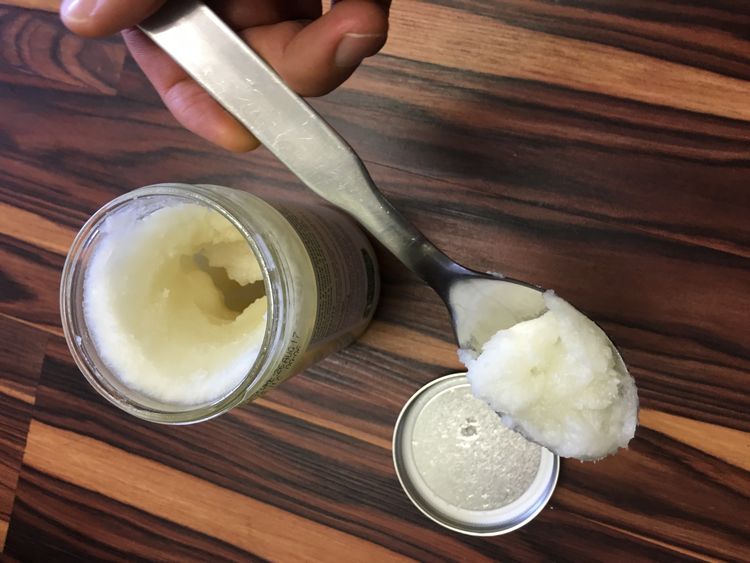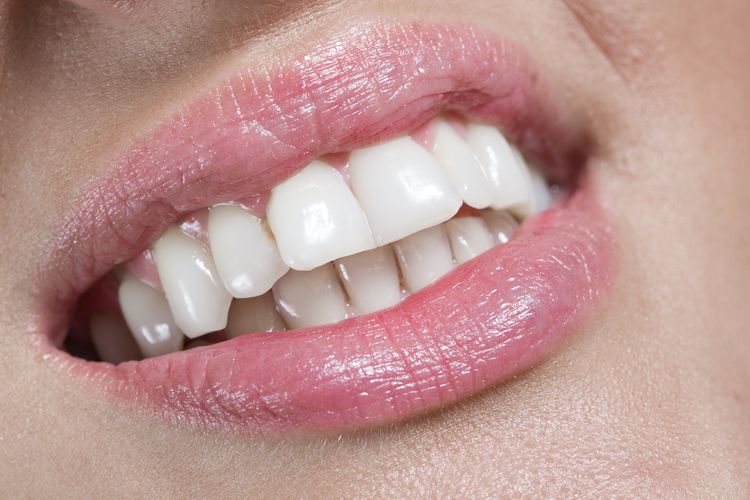Oil Pulling Explained and Why You’d Benefit From it

Your mouth is like a window into the rest of your body, and oral health is increasingly being seen as a strong indicator of your overall health. In the Ayurvedic medicine tradition, dating back hundreds of years, a common practice for improving oral health is oil pulling.
Oil pulling is the simple act of swishing a plant-based oil in your mouth and spitting it out— and the go-to oil for this practice is coconut oil.
Throughout Southeast Asia and other tropical areas, the coconut tree is revered as the tree of life, and for good reason. More than 1,500 studies have shown the many health benefits of coconut oil. These include:
- Balancing hormones
- Killing candida (the most common culprit causing yeast infections)
- Improving digestion
- Moisturizing skin
- Reducing cellulite
- Decreasing age spots and wrinkles
- Balancing blood sugar
- Boosting energy
- Improving Alzheimer’s
- Burning fat
- Lowering bad cholesterol and raising good cholesterol.
And that’s just the tip of the proverbial iceberg! Populations that rely heavily on coconuts for calories are exceptionally healthy and show no signs of cardiovascular disease, despite consuming large amounts of the saturated fats found in coconuts.
Did you know that improving Alzheimer’s is among the benefits of coconut oil? The scientific community has yet to fully catch up with the wisdom of ancient practices, but there are plenty of anecdotal cases where caregivers have used coconut oil with loved ones suffering from Alzheimer’s and have seen substantial improvements.
There are literally dozens of different ways to incorporate coconut oil into your cooking, hygiene and beauty routines and medicinal practices. But let’s focus specifically on just one use for coconut oil: the practice of oil pulling to improve oral health. After all, people didn’t brush their teeth back in ancient times. Instead, they often used the practice of oil pulling with coconut oil to maintain their oral health. But not all coconut oil is created equal.
Why Extra Virgin Coconut Oil is Best for Oil Pulling
Like any plant-based oil, there’s no cholesterol in coconut oil, and although there are plenty of fats in it, they’re mostly medium-chain fatty acids (MCFAs) that are quite good for you. The three unique fatty acids in coconut oil are Lauric acid, Capric acid, and Caprylic acid.
MCFAs are quickly turned into energy in the body, and are much less likely to be stored as fat. For the purposes of oil pulling, it’s the antimicrobial (antiviral, antibacterial, antifungal) properties that really shine.
To get the most out of coconut oil pulling, look for organic, extra virgin oil that’s been prepared through wet-milling, fermentation, and heat processing—processes that keep the highest amount of antioxidants intact in the final product. This is also called unrefined coconut oil because it’s extracted from fresh coconut meat, rather than dried meat.
People who cook with coconut oil usually want it refined to take out the strong coconut flavor and to benefit from its higher smoke point. But compared to unrefined oil, it’s not as healthy, as it’s been bleached and deodorized (which destroys the antioxidants), and sometimes partially hydrogenated (which means it’ll have trans fats). Still, both refined and unrefined coconut oils have the beneficial fatty acids previously mentioned.

Oil Pulling for Oral Hygiene
The benefits of coconut oil pulling for improving oral hygiene are impressive. The process literally pulls bad stuff right out of your mouth. It’s a powerful detoxification practice that fights bacteria, cures tooth decay and gum disease, eliminates bad breath, and even boosts your immune system.
The antimicrobial action of the MCFAs in coconut oil denature the bacteria in your mouth, which means they wreck the bacteria’s proteins and kill it. The dead bacteria stick to the oil and exit your mouth when you spit it out. Coconut oil has an especially high concentration of those MCFAs, which is why it’s such an effective oil for pulling.
How-To on Oil Pulling
Oil pulling’s a very simple process. Just follow the steps below:
- The best time to oil pull is first thing when you get out of bed before you do anything else, and especially before eating, drinking, or brushing your teeth.
- Take 1-2 tablespoons of coconut oil into your mouth and hold it in there, gently swishing it around for 10-20 minutes. Don’t swallow it!
- Spit the oil out into your kitchen trash. Putting oil down your sink drain on a regular basis can wreak havoc on your plumbing.
- Do a quick mouth rinse with warm water (add sea salt for extra antimicrobial action).
- Now you can go about the rest of your normal daily routine.
Oil Pulling Questions and Answers
Q: Is oil pulling good for kids?
A: You bet it is! You’ll want to use a smaller amount (a teaspoon) and make sure they understand the idea of swishing it around gently for at least 10 minutes without swallowing it.
Q: Do fillings interfere with oil pulling?
A: Not at all. It pulls out bacteria, pus, and mucus, but has no effect on fillings, porcelain, amalgam, or composite dental work.
Q: Why oil pull first thing in the morning?
A: Morning is the best time, but it doesn’t mean it’s the only time. The idea is to do it on an empty stomach, so whenever you can fit it in is okay. Most people find that working it into their morning routine works best to make it a habit.
Q: Isn’t 20 minutes an awfully long time for oil pulling?
A: If 10-20 minutes feels like an excruciatingly long time to you, do the oil pull while you’re doing something else, such as taking a shower or preparing your breakfast. The 10-20 minutes is how long it takes to get the full cleansing and detoxifying benefits from oil pulling.
Q: How soon will I notice improvements?
A: For the most part, people realize they have a cleaner mouth and better breath after about a week, and better dental health and gums within a month.
Q: Are there any side effects to watch out for?
A: Depending on how vigorously you swish, you might notice some jaw soreness. Try swishing more gently. For some, oil pulling will loosen mucous in your sinuses and cause it to drain, which isn’t a bad thing at all! Oil pulling might cause some people to gag, but that just means you’re letting the oil get too far back in your mouth. Keep your head tipped ever so slightly forward to prevent the gag reflex from kicking in.
Q: Is oil pulling safe during pregnancy?
A: Yes, especially since all the bad stuff that’s pulled out is expelled when you spit the oil out.
Ready to experience the benefits of coconut oil pulling? Remember to look for organic, extra virgin (unrefined) coconut oil processed without solvents from fresh meat. Your mouth, not to mention the rest of your body, will thank you!
